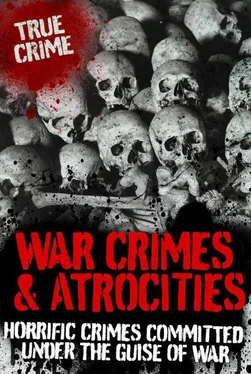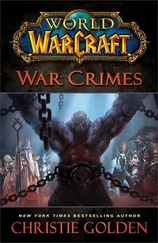At the Nuremberg Trials, which began in 1945, a number of leading Nazi officials were tried and hanged for their part in the invasion of Poland, the genocide of the Jews and the killing of Polish citizens in Warsaw. These included Joachim von Ribbentrop, Wilhelm Keitel, and Hans Frank, known as the ‘Jew Butcher of Cracow’.
1940–44

Greece was occupied by Germany during World War II, despite the brave resistance of its people to the Nazi invasion. On 28 October, 1940, Mussolini sent a message asking Greek dictator Ioannis Metaxas to allow his troops to enter the country, and to surrender arms to the Axis powers. Legend has it that the Greek government responded with a simple ‘No’ ( Ochi in Greek), though some historians dispute this, saying that the Greek government, in fact, sent back a message saying – in French – that it would choose to go to war with the Axis powers rather than surrender. Whatever the case, ‘Ochi Day’ has been celebrated in Greece ever since, as the moment when the Greek nation said no to fascism and stood up for its independence as a sovereign state.
As a result of the Greeks’ refusal to capitulate, Italian troops stationed in Albania attacked the mainland, and after a period of bitter fighting, the Germans invaded and occupied Greece. However, during the period of occupation, Greek resistance fighters constantly sabotaged the regime, particularly on the island of Crete, causing direct disruption to the Axis powers’ military campaign in Russia, as well as other campaigns.
REVENGE MASSACRES
However, the Axis powers responded to these acts of resistance with terrible reprisals, in the form of massacres and atrocities perpetrated on the civilian people of Greece. One of the worst massacres of the entire war took place on the island of Cefalonia in September 1943. An Italian division of more than 12,000 men and officers, known as ‘Acqui’ and commanded by General Antonio Gandin, were stationed on the island. Earlier that month, the Italian troops had been told to end hostilities against the Allies, since the alliance between Germany and Italy was beginning to break down. On Cefalonia, the Italian troops were jubilant and they celebrated the news by singing, dancing and drinking, overjoyed to think that Italy’s support of the Nazi regime was coming to an end and that defeat for the Nazis seemed to be in sight at last.
German troops stationed on the mainland of Greece were, however, bitterly disappointed at the news, as well they might be. Their resentment and anger reached a crescendo when they heard of the merriment on Cefalonia, and they decided to attack the Italian troops. German aircraft began to bomb the island, and a German battalion commanded by Major Harald von Hirschfeld travelled to the island to attack the Italians. The German troops immediately began fighting, and soon shot General Gandin, along with groups of other Italian prisoners. According to witness accounts, the Nazis took out Italian prisoners in groups of four to ten people, and shot them together. Unbelievably, they shot over 4,000 Italian soldiers in this way, leaving their dead bodies all over the island. Another 4,000 soldiers were taken by ship to the mainland and then transported to labour camps in Germany. Sadly, some of the ships travelling through the Ionian sea on their way there were hit by mines, and many of these soldiers died on the way.
In total, about 10,000 Italian soldiers died as a result of fighting between the Germans and Italians in Greece. Afterwards, the case came to the courts at the Nuremberg War Trials, but by this time von Hirschfeld was dead, killed by a bomb in Warsaw in 1945. However, another general involved, Hubert Lanz, who had commanded some of the troops, was charged with the massacres. He gained a sentence of 12 years’ imprisonment, and was later released. The case was re-opened in 2002, and a further ten ex-Nazi officers (now in their eighties and nineties) were investigated to determine their part in the killings.
In order to honour those who had died in this tragic episode, the remains of more than 3,000 soldiers were dug up in the 1950s and taken back to Italy to receive a proper burial. Today, their graves remain in the war cemetery at Bari.
WEDDING PARTY MASSACRE
Another hideous massacre took place at the village of Kommeno in Northern Greece on 16 August, 1943, when a wedding party was taking place. Thedoros Mallios gave a wedding reception for his son Spyros, which lasted the whole night through. In the early morning, the revellers left the party, only to be gunned down by soldiers from the First Alpenjager Division, known as ‘Edelweiss’. The bride, groom and all the guests were shot dead, and the house then razed to the ground. A total of 34 people died in this incident. The soldiers also rampaged around the village, killing over 300 people – almost half the inhabitants of the village, including 74 children aged from one year old to ten years old. Finally, they set fire to the houses and burnt the village to the ground.
On the island of Kos, a terrible massacre of prisoners of war took place on 4 October, 1943. By now, Italian troops were fighting on the British side in the war. However, despite the combined Allied forces, Germany gained the upper hand at Kos, and took over 4,000 soldiers prisoner. Hitler ordered all the Italian soldiers among them to be executed, including the officer commanding the Italian troops, Colonel Felice Leggio. The Italian prisoners were taken to a deserted area just outside the town, where they were shot in groups of ten. Afterwards, the victims were buried in a mass grave. In all, 102 men perished in this way. Once the war was over, the Greek authorities had the bodies unearthed and taken back to Italy, where they were buried at the war cemetery in Bari.
SADISTIC KILLINGS
Resistance activity was high in Greece throughout the war, resulting in terrible reprisal atrocities committed by the German troops. On the morning of 13 December, 1945, in the town of Kalavryta in the south of Greece, a German army unit called the ‘Kampfgruppe Ebersberger’ attacked civilians in revenge for resistance activity around the area. The soldiers rounded up inhabitants and took them prisoner in the local school, before taking the men out to a hillside where they were all shot dead. Over 600 men, forming the whole male population of the town, were murdered in this way. The German soldiers also set the town on fire, killing many more victims and leaving only a few houses standing. The massacre is remembered today with a memorial, listing the names of the men who died at Kalavryta and the surrounding villages on that fateful day.
Another horrifying massacre took place at Distomo in central Greece on 10 June, 1944. In this incident, an SS Police unit known as the Panzergrenadier Regiment Number Seven was attacked by resistance fighters as it drove through the area. Seven SS soldiers were killed in an ambush outside the village, whereupon the SS convoy doubled back and wreaked their revenge on the civilian population there. The soldiers ran amok in the village, raping women, looting the houses and setting fire to the buildings. Their attacks on the local people were savage: in one case, a woman and her baby were mutilated, her breast cut off while the nipple was still in the baby’s mouth. All along the main street, bodies were strung up on the trees. All in all, 218 civilians were murdered, some of them in the most horrible ways.
Later, it was found out that the commander of the unit, SS Hauptstrumfuhrer Lautenbach, had falsified a report on the episode, but no action was taken as the massacre was judged a ‘military necessity’.
Читать дальше













